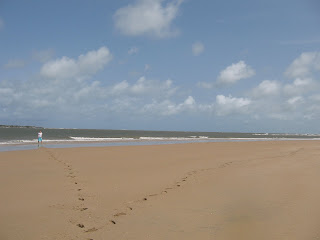These days we are facing rather imposing and terrifying world problems: peak oil, global warming and ozone layer destruction. This is only a beginning of a list that could continue for miles. Endless problems that seem to be heading towards inevitably grim outcomes which often times causes us to stick our head in the ground, feeling hopeless to make any difference. Along side of providing care and education for orphans and vulnerable children in Uganda,
COU is stepping up to the plate to begin combat against the incoming and present food crisis. For the past three weeks the staff at
COU have been making plans with the guidance of expert
permaculturist, Rosemary Morrow towards ways to improve our land by increasing food production and decreasing waste. This program was brought to
COU by one of our fabulous board members, Jan Smart who had the
vi son to make a huge
difference in the way we use our land. I am so
ecstatic with the opportunity this has brought to the home. The children are learning how to reduce our waste and how to separate that which they do create, better water conservation and a better method of farming the land. Already Sabina Home is running on solar power and without showers and washing machines there is not a lot of water wastage. The biggest problem we face is littering and pollution through burning of black plastic bags which seems to be ubiquitous to Uganda. The children at Sabina (and myself) are buzzing with excitement of the new trash bins which they use to separate organics from plastics. They scold each other when waste is put in the wrong container and delightful continue to as questions about what is organic material. Vegetable gardens are being planted in a small part of the 106 acres that belong to Sabina Home. Other plans for the land include; planting fruit trees, starting cassava plantations and even possibly creating a land conservation area which will provide a home to indigenous animals and plants as well as to provide and educational spot for many students. The goal behind planting all the food is to improve the nutrition of the children in the program and to reduce the budget we have to allocate to feeding of so many. If all goes well we will be able to feed all children and staff of the land we have.
Mpola mpola (slowly by slowly) we are coming up with long term, environmentally friendly solutions to a few of the new problems. This program has already made lasting,
positive changes in the home. These are exciting times!
To see our
permaculture blog please go to
www.childrenofuganda-permaculture.blogspot.com





